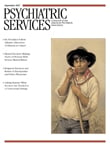A Fast, Implementable Psychoeducation Program for Schizophrenia
Although psychoeducational programs for patients with schizophrenia and their families can significantly reduce relapse rates, few patients are offered a psychoeducational program in routine clinical treatment. Implementation difficulties and lack of experience, training, and time are considered as the primary reasons for this situation. Therefore, we assessed whether a structured, manual-supported psychoeducational program for schizophrenia is suitable for broad implementation in routine clinical treatment and whether its results are comparable with those in experimental settings, namely the Munich Psychosis Information Project Study, which was previously conducted in our department.
We developed a psychoeducational program for patients with schizophrenia and their family members in cooperation with consumers, family members, and health care professionals from other institutions. The development of the Alliance Psychoeducation Program, supported by Pfizer, comprises 12 modules that cover symptoms and causes of schizophrenia, effects and side effects of medication, warning signs, contingency plan, psychosocial treatment, tasks of family members, alcohol and drugs, and partnership and sexuality. Manuals, workbooks, and flip charts are available for each module, and videotapes are available for several.
Multiprofessional teams in 154 hospitals were trained in a one-day workshop on the Alliance Program. Twenty-three hospitals evaluated their psychoeducational groups from April 2004 to April 2006. The information that follows pertains to these 23 sites. We assessed the implementability of the program and its impact on knowledge of schizophrenia and medication adherence. Separate groups for patients and family members were held by two moderators, once or twice per week, with each session lasting 60–90 minutes. Some of the moderators had experience in conducting psychoeducation; however, most did not. Before (baseline) and after (endpoint) participation in the program, patients and family members completed a knowledge-of-illness questionnaire about schizophrenia (maximum score of 70 points) and a feedback questionnaire at endpoint. Patients also completed the Medication Adherence Rating Scale (MARS, maximum score of 10 points). Professionals completed a feedback questionnaire after having conducted at least one psychoeducational group.
Data sets of 407 patients (62% male, 38% female) and 92 family members (74% female, 26% male) were evaluated. The mean age of patients was 32±10 years, mean duration of illness was six years; 83% were inpatients, 5% outpatients, and 12% patients in a daycare clinic. The mean age of family members was 51±12 years (66% parents, 14% partners, 8% siblings, 5% daughters and sons, and 7% other). On average, patients participated in 7.5 sessions and family members in six sessions.
Among patients, scores on the knowledge questionnaire significantly increased from 43.8 to 52.0 (N=370, p<.001) and on the MARS from 6.9 to 7.8 (N=211, p<.001). Among family members, knowledge of illness increased significantly, from 47.0 to 55.4 (N=92, p<.001) (paired t tests). Overall satisfaction of participants with the program and the moderators was high.
A total of 129 professionals (36% physicians, 30% psychologists, 18% nursing staff, 14% social worker, and 2% others) completed the feedback questionnaire. The handling of the material was considered convenient by 95% of respondents; 84% needed preparation time (33±36 minutes). Also, 88% of respondents regarded the effort to conduct the program as moderate, 8% substantial, 1% immoderate, and 3% negligible. All professionals considered the program to be very useful (53%) or useful (47%); 93% would use the program in the future, and 7% would use it with modifications.
These results showed that professionals trained in the program efficiently conducted groups, as indicated by the significant increase in participants' knowledge about schizophrenia and improvement in medication adherence. Participants considered the professional moderators to be helpful or very helpful. Most professionals found the effort to conduct the program to be moderate and indicated that they would use the program, which suggests compatibility with their other work.
The program successfully addressed two main reasons for not conducting psychoeducation: lack of training and lack of time. The program appeared to be easy to conduct even for "psychoeducation newcomers," perhaps because it provides comprehensive working material and is highly structured.
Increase in knowledge and medication adherence was comparable with that observed in the randomized, controlled Psychosis Information Project Study. In the seven-year follow-up of that study, patients in the psychoeducation group had been hospitalized for 75 days, compared with 225 days in the routine treatment group. Because the short-term results of the two studies are comparable, the long-term effects might be comparable as well.
This study was limited because of unavailability of long-term data and participation of few trained hospitals (15%). However, these findings support the feasibility of the successful implementation of the Alliance Psychoeducation Program in routine clinical treatment after only a one-day training workshop.



